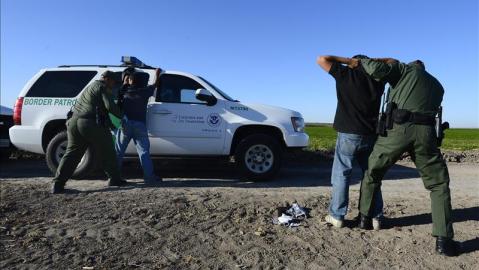Editorial: Cameras for Border Patrol
Video cameras on uniforms protect both the officer and the public.

La última muerte de un indocumentado a manos de un agente del CPB se presentó esta semana Crédito: EFE
Body cameras attached to the uniforms of law enforcement officers are an important tool to assist investigations, clarify inquiries and reduce expenses. At the same time, their presence reduces friction and helps elucidate facts when an officer exceeds the use of force or when a civilian wants to blame an agent of events that did not take place. We believe that they would be a suitable tool for the Border Patrol.
The use of body cameras is slowly gaining ground in some police departments after the numerous incidents that have caused a trust crisis regarding the actions of some officers. The Border Patrol undoubtedly has a history worthy of implementing the use of cameras.
It is estimated that over 2,000 complaints of improper conduct on the part of Border Patrol agents were registered in the past 7 years. An internal audit showed that agents were acquitted in 64 out of 67 incidents ‒ in which 19 people died, ‒ with three cases still pending. The result is identical to the findings made by the Police Research Forum, which revealed that there is a pattern of behavior in which agents shoot to kill and provoke reactions from people ‒ such as blocking a car with their body ‒ to justify firing shots.
The Border Patrol is studying the possibility of incorporating cameras. The reports indicate that obstacles include high costs and, supposedly, the agents’ refusal. They see it as a lack of trust that brings down their morale, and seem to be concerned with the possibility of their superiors using the videos against employees. All this is easy to overcome.
The priority is to create a regulation that takes into consideration the diversity of the work that the 60,000 employees of the Patrol perform, which ranges from guarding the border to watching the ports of entry into the U.S. Recording interactions with the public protects everyone, but it will require clear rules and appropriate training.
The Border Patrol is the largest police force in the country and also the most controversial. Video cameras will help to solve cases and protect both the agent and the public.




